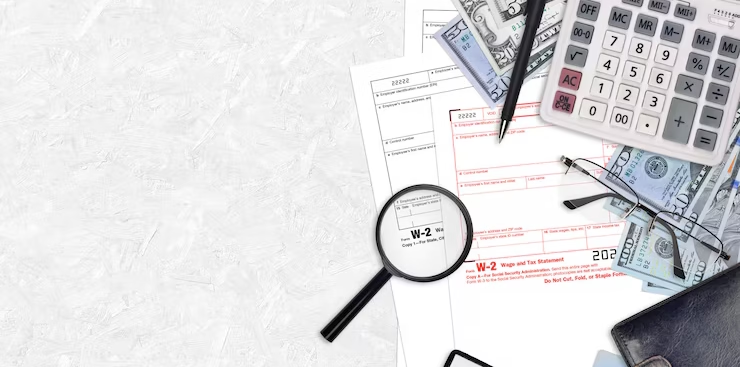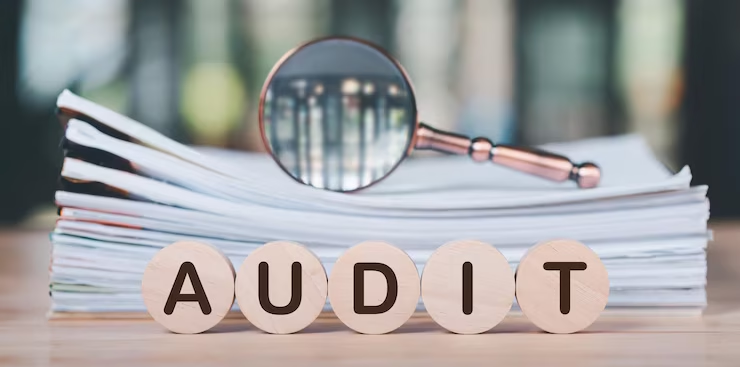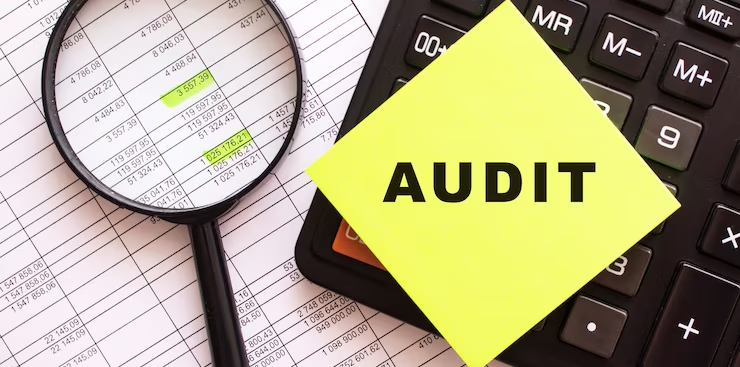In today’s complex financial landscape, maintaining the integrity of your financial records is more important than ever. Forensic accounting audits offer a powerful tool for uncovering hidden discrepancies, fraudulent activities, and mismanagement in financial statements. Whether you’re a business owner, a legal professional, or an individual investor, understanding the significance of forensic accounting audits can help you protect your assets, prevent financial crimes, and ensure transparency in your financial dealings.
This blog explores the critical role of forensic accounting audits, their benefits, and how they work. We will dive into the methodologies, the industries that benefit from these audits, and why you should consider securing professional forensic accounting audit services.
What is a Forensic Accounting Audit?
A forensic accounting audit is a specialized examination of financial records, designed to detect fraud, embezzlement, or other financial irregularities. Unlike traditional audits that focus on ensuring the accuracy and reliability of financial statements, forensic audits go deeper, analyzing financial transactions and tracing funds to detect hidden activities. Forensic accountants employ a variety of investigative techniques to uncover the truth behind discrepancies in financial documents.
The primary goal of a forensic accounting audit is to identify signs of fraud, financial mismanagement, or other illegal activities that could harm a business or individual. This process involves reviewing financial records, conducting interviews with relevant parties, and analyzing documents to provide a clear picture of financial integrity.
Key Benefits of Forensic Accounting Audits
Forensic accounting audits offer a wide range of benefits to businesses, legal professionals, and individuals. Here are some of the most significant advantages:
- Uncovering Fraud and Financial Crimes
The primary benefit of a forensic accounting audit is its ability to uncover fraudulent activities and financial crimes. Whether it’s embezzlement, asset misappropriation, or money laundering, forensic accountants are trained to identify the signs of financial misconduct. These audits often uncover discrepancies that would otherwise go unnoticed, helping to prevent further financial losses.
- Providing Legal Support
Forensic accounting audits play a crucial role in legal matters. Whether you are involved in a dispute, facing allegations of financial fraud, or preparing for a court case, forensic accountants can provide expert insights. The findings from a forensic accounting audit can serve as critical evidence in legal proceedings, helping to substantiate claims and defenses.
- Improved Financial Transparency
Forensic audits enhance the transparency of financial operations. By thoroughly examining all transactions and records, forensic accountants ensure that all financial activities are legitimate and properly documented. This increased transparency can help build trust with stakeholders, investors, and regulatory bodies.
- Risk Mitigation
Conducting regular forensic accounting audits can help mitigate risks associated with financial misconduct. By identifying potential weaknesses in financial systems and processes, businesses can implement stronger controls and safeguards to prevent fraud and errors. This proactive approach can save companies significant amounts of money in the long run.
- Financial Recovery
In cases where fraud or mismanagement has occurred, forensic accountants can help businesses recover lost funds. By tracing the flow of money and identifying where it was misused, forensic accountants can assist in recovering assets and holding responsible parties accountable.
How Forensic Accounting Audits Work
A forensic accounting audit is a meticulous and systematic process. The steps involved in a forensic audit can vary depending on the complexity of the case, but generally, the following steps are taken:
- Planning and Scoping
The first step in any forensic audit is planning and scoping. During this phase, forensic accountants define the scope of the audit and identify the areas that require further investigation. This includes gathering background information, identifying the key parties involved, and understanding the potential risks and concerns. A comprehensive plan is crucial for ensuring that the audit is thorough and focused on the right issues.
- Gathering Evidence
Once the scope of the audit has been established, the forensic accountant begins gathering relevant financial records and documents. This may include financial statements, bank records, tax returns, invoices, and any other records that could provide insight into the financial activities under investigation. Forensic accountants use advanced tools and techniques to analyze these documents and detect any irregularities.
- Investigating and Analyzing Financial Data
After gathering the necessary evidence, forensic accountants dive deep into the financial data to identify signs of fraud or mismanagement. They use a variety of investigative methods, including forensic data analysis, to trace transactions, cross-check information, and spot discrepancies. The goal is to uncover any hidden assets, fraudulent activities, or financial irregularities that could harm the business or individuals involved.
- Interviews and Interrogations
In many cases, forensic accountants also conduct interviews with individuals involved in the financial activities being investigated. These interviews can help uncover additional information, clarify discrepancies, and identify potential witnesses. Forensic accountants are trained to conduct interviews in a way that encourages openness and cooperation, ensuring that they gather all necessary information.
- Reporting Findings
Once the investigation is complete, the forensic accountant prepares a detailed report outlining their findings. This report includes an analysis of the financial data, a summary of any fraudulent activities or mismanagement discovered, and recommendations for corrective actions. In legal cases, this report can serve as critical evidence in court proceedings.
Industries That Benefit from Forensic Accounting Audits
Forensic accounting audits are beneficial in various industries, particularly those with large volumes of financial transactions or complex financial structures. Here are some industries that can greatly benefit from forensic audits:
- Corporate Sector
Companies in the corporate sector can use forensic accounting audits to ensure the integrity of their financial operations, prevent internal fraud, and safeguard assets. These audits are essential for large corporations, where fraud or embezzlement could result in significant financial losses.
- Banking and Financial Institutions
Banks and other financial institutions are prime targets for fraud and financial crimes. Forensic accounting audits help these institutions detect and prevent fraudulent activities, safeguard customer assets, and maintain compliance with regulatory requirements.
- Government and Public Sector
Government agencies and public sector organizations rely on forensic accounting audits to ensure transparency and accountability in their financial operations. These audits are essential for detecting misuse of public funds and preventing corruption.
- Legal and Insurance
Lawyers and insurance companies often use forensic accounting audits to investigate claims of fraud, misrepresentation, or financial disputes. Forensic accountants provide expert testimony in court and help to resolve complex financial issues in legal proceedings.
- Non-Profit Organizations
Non-profit organizations also benefit from forensic accounting audits to ensure that funds are being used appropriately and efficiently. These audits help detect potential misuse of donations or funds, ensuring that the organization remains accountable to its donors and stakeholders.
How Forensic Accounting Audits Protect Your Financial Integrity
The integrity of your financial records is crucial to your business’s success and reputation. A forensic accounting audit helps protect your financial integrity in several ways:
- Early Detection of Fraud
Forensic accountants are trained to spot red flags that might indicate fraudulent activities. By detecting these signs early, businesses can take action to prevent further financial damage and hold responsible parties accountable.
- Preventing Future Fraud
A forensic audit not only uncovers past fraud but also helps identify vulnerabilities in financial systems that could lead to future fraud. By addressing these weaknesses, businesses can implement stronger internal controls and safeguard their financial assets.
- Building Trust with Stakeholders
Financial integrity is essential for building trust with investors, customers, and other stakeholders. By conducting forensic accounting audits, businesses demonstrate their commitment to transparency and accountability, which helps foster stronger relationships with stakeholders.
- Legal Protection
In the event of a legal dispute, a forensic accounting audit can provide critical evidence that supports your position. Whether you’re defending against fraud allegations or pursuing a legal claim, forensic audit findings can strengthen your case and improve your chances of success.
Conclusion
Forensic accounting audits are an essential tool for safeguarding financial integrity and protecting your business or personal assets. By uncovering fraud, improving transparency, and providing legal support, forensic audits play a vital role in ensuring the accuracy and reliability of financial records. Whether you’re a business owner, legal professional, or individual investor, the benefits of forensic accounting audits cannot be overstated.
Secure Your Financial Integrity Today
If you’re ready to protect your financial future and ensure the integrity of your financial records, consider securing professional forensic accounting audit services. Whether you’re a business owner looking to safeguard your assets or a legal professional seeking expert insights, we’re here to help. Contact us today at (877)-399-2995 or visit Mortgage Audits Online to learn more. Secure your financial future with confidence!







